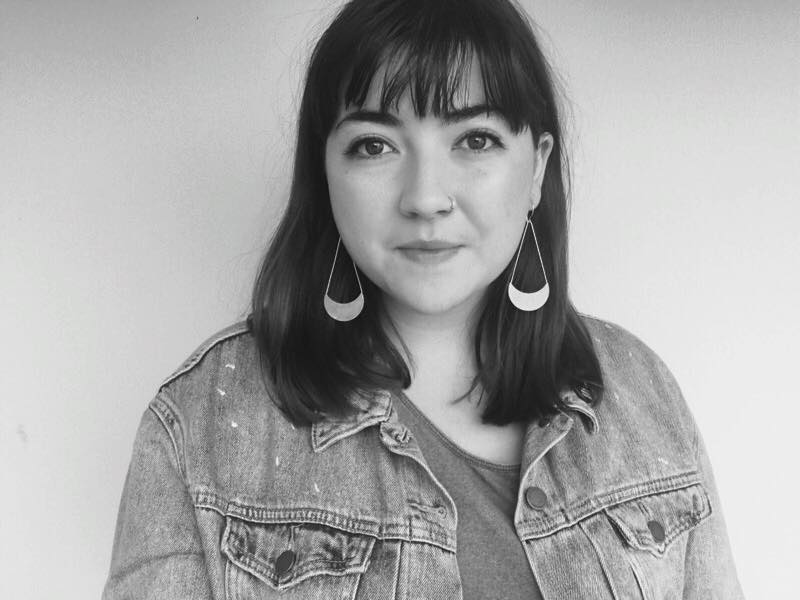When I’m reading nonfiction, I’m looking for strong sensory detail and a solid voice from the speaker. The best kinds of essays are the ones that start with a high level of specific detail and open up to the reader, allowing them to reflect back on their own experiences. This occurs through developing the setting with concrete imagery. Whether it is focused on just one striking event or transverses months or years, sensory details are essential to understanding how the characters are shaped by their surroundings — and to ground the audience in those moments.
Consider Hamartia: The Failure to Recognize, Rachel Toliver’s essay in Issue 151 of TriQuarterly. The essay is highly personal, lush with detail, and uses location to stunning effect: The street is empty except for a little boy who wears only shorts and stands solemn in his black body. He takes up the middle of the pavement and he stays there, face quiet in the midst of concrete curbs and locked car doors. I can sense, looking at him, the translucent column of his personhood there, patient inside his chest. The scene suspends the boy in the moment, and Toliver allows the reader to rest in that image with her. In just a paragraph, it develops space and setting very quickly with details that provoke thoughts about politicizing black bodies, childhood, and observing the inner world of other people.
I am looking for deeply personal essays — because I’m reading to learn from the speaker, develop my own empathy and try think about the world in new ways. It can be tempting to overgeneralize; as Mary Karr says in The Art of Memoir, “I’ve said it’s hard. Here’s how hard: everybody I know who wades deep enough into memory’s waters drowns a little.” However, when speakers shy away from the gritty details, the story suffers. Vulnerability and thoughtfulness are exactly what I’m looking for in nonfiction. Not every piece needs to be sentimental or overwrought, but I want the speaker to really dig into the memories they choose to share and to clearly show readers why these thoughts matter.
I believe the best literature encourages readers and writers to reach out and learn from each other, and that’s where nonfiction shines. By grounding a story in rich sensory detail and honest reflection, the speaker is allowing us to live, briefly suspended in their moment.
 Bio: Jaime Faulkner is a junior at Arizona State University majoring in Communication. She is currently the Nonfiction Editor for Superstition Review, as well as a volunteer editor with Four Chambers Press. Upon graduation, she hopes to work in publishing as an editor and author.
Bio: Jaime Faulkner is a junior at Arizona State University majoring in Communication. She is currently the Nonfiction Editor for Superstition Review, as well as a volunteer editor with Four Chambers Press. Upon graduation, she hopes to work in publishing as an editor and author.
- Tread Lightly On This Storied Pavement: Michael Engelhard’s No Walk in the Park - April 29, 2024
- Launch Party Today - April 26, 2024
- Meet the Nonfiction Contributors for Issue 33 - April 25, 2024
“I’ve said it’s hard. Here’s how hard: everybody I know who wades deep enough into memory’s waters drowns a little.” This part stopped my heart a bit because of how true it is. Going back into the past can be haunting for some and it’s not an easy thing to do, but I believe it can be powerfully healing for both the writer and the reader if boldly done.
The world of non-fiction is very new to me as I have never tried my hand at it, but reading Jaime Faulkner’s perspective on it and how she focuses on “deeply personal essays,” makes me want to explore it more. Especially non-fiction that deals with memories and uses that “rich sensory detail” she talks about.
This post has some great advice for nonfiction writers. It’s so important to ground a story with details that grab the reader like Jamie says. “I believe the best literature encourages readers and writers to reach out and learn from each other.” I agree that nonficiton definitely shines in this aspect. It’s a wonderful thing to read someone’s story and feel connected to them.
That’s a great quote! We love fostering a community and the unique ability of literature to help build that.
I love that she brought in a quote from Mary Karr. Mary Karr is a fantastic writer, and she has penned one of my favorite non-fiction works of all time. I love that Jamie shared what she looks for in non-fiction pieces, and I have to say, I totally agree.